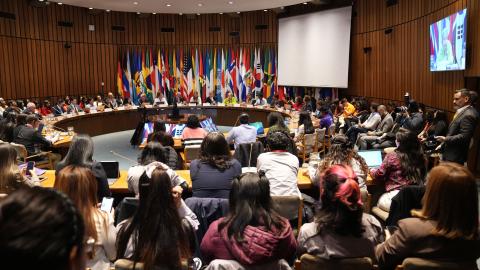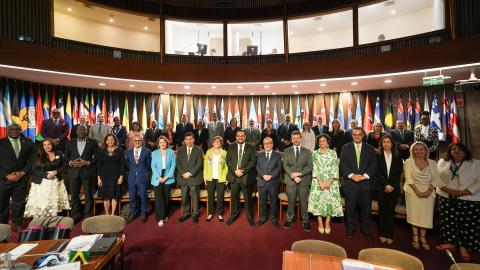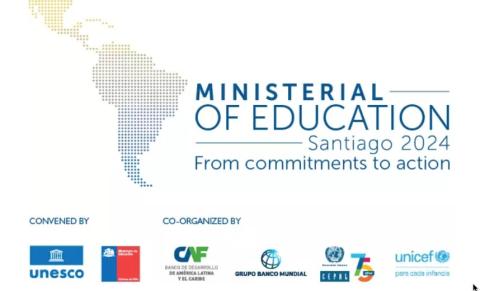News
The Haitian State must play a more active role in the social protection system oriented towards childhood and adolescence in the country, in order to improve its quality, broaden its coverage, achieve stable financing and overcome today’s fragmentation, according to the study Promoción y protección social de la infancia y adolescencia en Haití (Promotion and Social Protection of Childhood and Adolescence in Haiti), prepared by the Economic Commission for Latin America and the Caribbean (ECLAC).
Despite the fact that 47.7 % of Haiti’s population is under 20 years old (2012), and around half live in poverty according to their income, the main social protection programs aimed at children and young people have very limited coverage, the report states.
The document recognizes the efforts made to coordinate social protection more and acknowledges some progress in children and adolescents’ well-being over the last 20 years, but it warns that there are still very few opportunities for social promotion, especially in rural areas. The country lacks an early childhood policy, as well as social programs directed towards adolescence and quality education and health services, says Nathalie Lamaute-Brisson, author of the report.
The study recommends, among other strategies, optimizing financial investment in the education sector to improve coverage and quality, as well as addressing the problem of child labor, both in terms of domestic tasks and economic market activity.
This publication, which is part of the series Social Policies, was carried out in the framework of an agreement between ECLAC and the United Nations Children’s Fund (UNICEF) to contribute to the analysis of children’s rights and social protection systems in the region.



